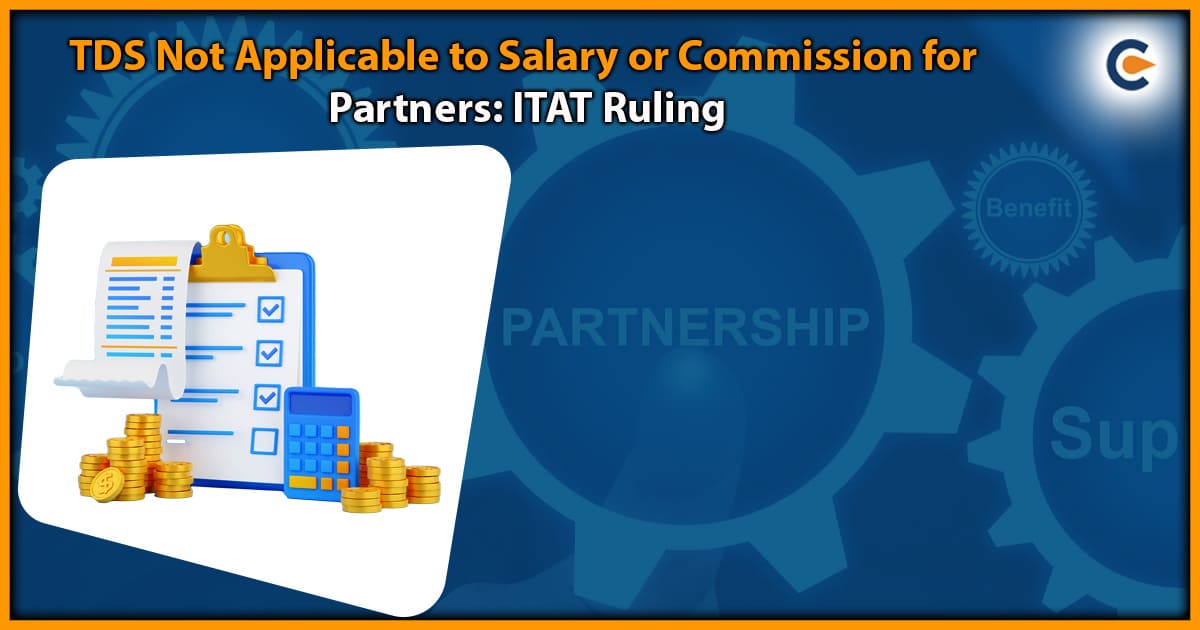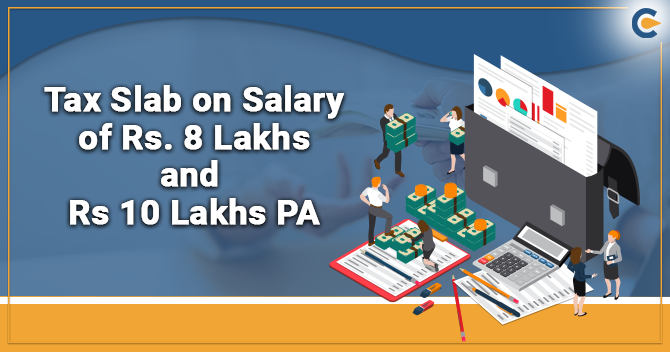In a recent ruling, the Income Tax Appellate Tribunal (ITAT) has provided clarity on the applicability of Tax Deducted at Source (TDS) provisions to salary or commission paid to partners in a partnership firm. The ITAT has ruled that TDS is not applicable to salary or commission payments made to partners, bringing relief to both the partners and the firms they are associated with. This significant decision has far-reaching implications for the taxation of partnership firms in India. In this blog post, we will delve deeper into the ITAT’s ruling and its implications for partners and partnership firms.
Understanding TDS:
The primary objective of TDS is to ensure a steady inflow of tax revenue to the government and to prevent tax evasion[1]. It shifts the responsibility of tax deduction from the taxpayer to the person making the payment. This mechanism helps in effectively tracking and taxing various types of income, such as salaries, interest, rent, professional fees, commission, and more.
Key Points about TDS:
- Applicability: TDS is applicable to various types of payments, including salary, interest, rent, professional fees, commission, royalty, and contractual payments, as specified under the Income Tax Act, 1961. The rates and thresholds for TDS vary depending on the nature of the payment.
- Deductor and Deductee: In the context of TDS, the person making the payment is referred to as the “deductor,” and the person receiving the payment is called the “deductee.”
- TAN: The deductor is required to obtain a Tax Deduction and Collection Account Number (TAN) from the Income Tax Department. The TAN is used for reporting and remitting the TDS amount to the government.
- TDS Rates and Thresholds: Each type of payment has specific TDS rates prescribed by the tax authorities. These rates can vary based on factors such as the nature of the payment, residency status of the deductee, and the threshold limit for TDS applicability.
- TDS Certificate: After deducting the tax, the deductor issues a TDS certificate to the deductee as proof of tax deduction. The TDS certificate contains details such as the amount paid, the tax deducted, and the tax deposited with the government.
- TDS Return Filing: The deductor is required to file periodic TDS returns providing details of the deductions made and the taxes deposited with the government. These returns need to be filed electronically within the specified due dates.
- TDS Credit for Deductee: The amount of tax deducted is reflected in the deductee’s Form 26AS, which acts as a consolidated tax credit statement. The deductee can claim credit for the TDS amount while filing their income tax return, which helps in reducing their overall tax liability.
- Exemptions and Lower Deduction Certificates: In certain cases, the deductee may be eligible for exemptions or a lower rate of TDS deduction. To avail these benefits, the deductee can submit a valid exemption or lower deduction certificate to the deductor.
- Consequences of Non-Compliance: Failure to deduct TDS or deposit the deducted amount with the government within the specified due dates can attract penalties and interest. Non-compliance with TDS provisions may also result in disallowance of expenses, which can increase the tax liability of the deductor.
It is important for deductors and deductees to understand the applicable TDS provisions, rates, and compliance requirements to ensure accurate deduction and deposit of TDS. Proper record-keeping and timely filing of TDS returns are crucial to avoid any penalties or consequences for non-compliance with TDS regulations.
The ITAT’s Ruling:
The ITAT ruling pertains to the applicability of TDS to salary or commission paid to partners of a partnership firm. The case involved a partnership firm that paid salary and commission to its partners. The firm had not deducted TDS on these payments, contending that TDS provisions were not applicable in such a scenario. The tax authorities disagreed and demanded that TDS should have been deducted. The matter eventually reached the ITAT, which ruled in favor of the partnership firm.
Reasoning behind the Ruling:
The ITAT based its ruling on a careful analysis of the relevant provisions of the Income Tax Act, 1961. It observed that the definition of “salary” under the Act explicitly excludes partners of a firm. The Act also provides for specific treatment of partnership firms and partners’ income. The ITAT opined that since the law does not consider a partner’s share of profit as salary, TDS provisions should not be applicable to such payments. The ruling clarified that salary or commission paid to partners should be taxed under the head “Profit and Gains of Business or Profession” and not as salary income.
Implications for Partners and Partnership Firms:
The ITAT’s ruling brings much-needed clarity on the taxation of salary and commission payments to partners. It ensures that partnership firms are not burdened with the requirement of deducting TDS on such payments. This decision is likely to reduce compliance and administrative burdens for partnership firms, streamlining their financial operations.
Partners also stand to benefit from this ruling as their income from the firm will be taxed under the head “Profit and Gains of Business or Profession.” This may result in potential tax savings for partners, as the tax rates applicable to business income can be different from those applicable to salary income.
It is important to note that the ruling is specific to salary or commission payments made to partners in partnership firms. Other provisions of TDS, such as those related to payments made to employees or independent contractors, continue to apply as per the existing tax laws.
Conclusion:
The ITAT’s ruling stating that TDS is not applicable to salary or commission paid to partners in a partnership firm brings clarity and relief to both partners and firms. This decision will significantly ease the compliance burden for partnership firms and aligns with the specific treatment of partners’ income under the Income Tax Act. Partners can now look forward to a simplified tax structure where their income will be taxed under the head “Profit and Gains of Business or Profession.” It is crucial for partnership firms and partners to understand the implications of this ruling and ensure compliance with the prevailing tax laws.
Read our Article:How To Obtain SPCB Certificate For Ice Cream Manufacturers?











